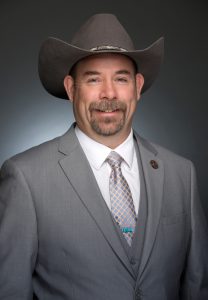Tag: doug ducey
House, Senate discard mask requirement
Get 24/7 political news coverage and access to events honoring top political professionals
Lawmakers to consider per diem increase
State lawmakers are moving to more than triple their expense allowance.
The proposal being pushed by Sen. David Gowan, R-Sierra Vista, would tie the reimbursement for out-county legislators to the rate the General Services Administration allows for federal employees. That rate, based on location and time of year, is $203 a night for Phoenix during the winter for lodging, including $151 for lodging and the balance for meals and incidentals
Compare that to the $60 a night now permitted under state law for what is supposed to be a 100-day session each year.
But Rep. David Cook, R-Globe, a supporter of the move, said it’s even worse than that.
He pointed out that legislators who live in Maricopa County get $35 a day just to drive to and from their own homes and for their incidental expenses, whatever they are.
“These guys get to go home and have dinner every night at their house,” he said.
But that’s not an option for a legislator from Tucson or Lake Havasu — or Globe.
“So where would I stay on 25 bucks?” he asked, the differential between in-county and out-county allowances. And that doesn’t even count the cost of food.

But HB 2053, to be considered Wednesday in the Senate Appropriations Committee, isn’t just about providing financial relief to out-county legislators.
Gowan’s proposal would entitle those who live in Maricopa County — and who get to go home each night — to that $53 a day for the meals and incidentals, more than double what they get now.
That may help pick up some support from the in-county legislators who make up the majority.
But adding them into the mix could doom the entire measure.
That’s just what happened two years ago when lawmakers tried to set the out-county per diem at $190 — and $92.50 for in-county legislators. It was vetoed by Gov. Doug Ducey.
In his veto message, the governor said he had no problem with the raise for the lawmakers from the other 14 counties.
“Arizona is the sixth largest state in terms of land area,” Ducey wrote. “So for rural legislators and those representing areas outside of Maricopa County, there is a strong case to be made for ensuring we are appropriately recognizing what is required for them to be here at the state Capitol in Phoenix during session.”
But the governor made it clear he was not interested in boosting the daily allowance collected by lawmakers who live in Maricopa County, the ones who can go home every night and have no need for local lodging.
Cook said the distinction is fair.
“All things being equal, these people have to come down, find a place to live, rent a place or get a hotel room room or whatever, and it still doesn’t cover the cost of doing that stuff,” he said. “In other words, I guess you’ve got to be independently wealthy or in business or something, or have an (outside) income you spend to come down here and do this.”
And that, Cook said, can mean that the legislature is not reflective of Arizona as a whole — or the districts from which they come.
“We don’t have the ability to have, really, someone come down and represent those districts,” he said.
In his own case, Cook said he’s “fortunate.”
He said in the 1950s his in-laws bought a home in Mesa. When they didn’t need it, it went to his brother-in-law. And eventually Cook and his wife bought it from them.
That provides him a place to stay during the session — and a place to cook meals — without needing a hotel and without having to go to restaurants.
Without that, Cook said, he would be faced with a choice: Make the daily drive from Globe or spend the money to find local accommodations. And that, he said, is the choice that many rural lawmakers now have.
Senate President Karen Fann, R-Prescott, said there’s another option.
“If the voters would consider a raise from the $24,000, maybe there wouldn’t be this push for per diem,” she said.
But as Fann noted, legislative pay can be adjusted only if voters approve.
The last time that happened was in 1998. Since then, voters rejected taking that to $36,000 a year. And even when it was pared to $30,000 it also went down to defeat.
Editor’s note: A previous version of this story reported that David Cook was the sponsor of the legislation and that the rate was $193 a night.
Legislation that changes ELL program gains support
Get 24/7 political news coverage and access to events honoring top political professionals
Health director: Keep wearing mask, social distancing
Get 24/7 political news coverage and access to events honoring top political professionals
Ducey’s next Supreme Court pick stirs speculation
Get 24/7 political news coverage and access to events honoring top political professionals
Brnovich takes feds to court over ban on tax cuts
Ducey lifts Covid restrictions, but city officials object
Senate panel approves community college aid
Ducey straddles fence on Senate election audit
Ducey talks disdain for new education tax, vows fast fix
Arizona opens vaccine appointments to everyone 16 and older
Arizona is opening coronavirus vaccine appointments to everyone 16 and older.
Gov. Doug Ducey said Monday that appointments will be available at state-run mass vaccination sites in Phoenix, Tucson and Yuma beginning at 8 a.m. on Wednesday. Ducey said the decision was made based on an anticipated increase in vaccine supply.
Arizona is among the first states to allow anyone to sign up for vaccine appointments. President Biden has said he wants states to take that step by May 1 and seek to vaccinate everyone who wants a shot by the end of May.
About 2.9 million vaccine doses have been given to about 1.1 million people so far in Arizona, according to state officials.
The change applies only to state-run vaccination sites, which have distributed the bulk of the vaccines in Arizona but are in urban areas.
Counties and some pharmacies have their own vaccine supplies and eligibility criteria, such as a health condition or a job in an essential industry.
Health officials on Monday reported 484 new confirmed Covid cases but no deaths, marking another day of downward trends in the coronavirus outbreak.
Arizona’s pandemic totals have now risen to 836,737 cases and 16,745 known deaths since the pandemic began.
The number of infections is thought to be far higher than reported because many people have not been tested, and studies suggest people can be infected with the virus without feeling sick.
State health officials said the number of confirmed or suspected coronavirus hospitalized patients around Arizona decreased to 647 on Sunday.
In addition, the number of ICU beds used by Covid patients fell to 180.
Arizona’s weekly percent positivity for Covid diagnostic testing, an indicator of how much the virus is spreading in the community, is at a five-month low.


